About The Speakers
Global Teach Connect Celebration and Summit

Dr. Aroutis Foster, Interim Dean Drexel School of Education and Professor, Learning Sciences and Technologies
Aroutis Foster is the Interim Dean and a Professor of Learning Technologies in the School of Education at Drexel University in Philadelphia, PA. He was formerly the Associate Dean of Academic Affairs and Graduate Studies. He leads the Games and Learning in Interactive Digital Environments (GLIDE) Lab and is the founder of the Drexel Learning Games Network. He teaches and conducts research on the theoretical and practical applications of designed environments such as games and interactive digital environments to advance our understanding of learners’ knowledge, identity, and motivation in different settings including schools, workplaces, informal, and online environments. His broad research interests focus on the design of technology, computer-based learning environments, automated and personalized learning, technology integration, identity exploration, motivation, cognition, and learning. His research aims to explore the learning process including motivation to learn and learners’ identity change using immersive digital technologies, such as games. This includes model testing and development to integrate games and immersive technologies to support teachers and learners; the design of immersive and game environments to impact knowledge, identity change, and motivation to learn; and the investigation of the pedagogic, assessment, and motivational affordances of immersive digital environments for cognition, motivation, and behavior. Dr. Foster’s background is in educational psychology, educational technology, digital media, information technology education, and communications. His professional agenda has emerged from both his research and life experiences growing up in the Caribbean (Jamaica), and studying and living in New York City; East Lansing, Michigan; and Philadelphia. He serves on several editorial review and advisory boards for journals and organizations related technology and learning. He has published book chapters and journal articles about technology and learning. He has won awards for his work on technology and learning. He is a Phi Beta Kappa Member, a Mellon Mays Fellow, and the recipient of a Spencer Research Training Grant, and a NSF CAREER award.

Zabeth Teelucksingh, Global Philadelphia President
Zabeth Teelucksingh currently leads the Global Philadelphia Association, a non-profit designed to raise awareness of Philadelphia as a global city, including the World Heritage City and the Sustainable Development Goals Projects. With more than 25 years of international business, b2b and non-profit experience, Zabeth is highly skilled in all aspects of Marketing, Communications and Branding with a global vision. She serves on several boards including Philadelphia250, U.S. Global Leadership Coalition Advisory Committee, PA Humanities Council and the Alliance Francaise. Born in Carthage, Tunisia, Zabeth was educated in the UK, graduating from Lancaster University with a triple major in Philosophy, Politics and History. She studied French Civilization at the Sorbonne in Paris and holds an Executive Diploma in Social Impact from The University of Pennsylvania.
Abstract: Global Competencies: Shaping the Future Workforce
In an era defined by rapid globalization and technological advancement, the need for a workforce equipped with global competencies has never been greater. This keynote address, "Global Competencies: Shaping the Future Workforce and Heritage," explores the essential skills and knowledge that educators must impart to prepare students for a dynamic and interconnected world. The President of Global Philadelphia will delve into how cultivating global competencies can influence not only career success but also the preservation and appreciation of cultural heritage.
By bridging the gap between diverse cultural perspectives and modern workforce demands, this address will provide actionable insights and strategies for educators to shape the next generation of globally competent and culturally aware individuals.
Join us to understand how fostering these competencies can drive innovation, enhance cultural understanding, and ensure a prosperous and inclusive future.
This theme examines the perceived association between global competencies, heritage and the workforce of the future. It invites discussions on the skills, knowledge, and dispositions needed to thrive in a globalized world and explores how education can prepare students for success in diverse workplaces, industries, and global contexts.
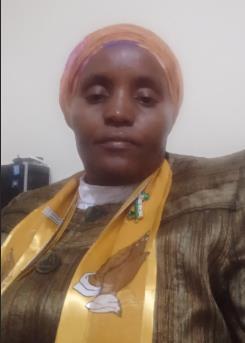
Dr. Sarah Wanjira
Sarah Wanjira is an experienced educator with a passion for global education and curriculum development. With over 5 years of experience in the field of intercultural exchange has worked extensively on integrating global perspectives and competencies into K-12 education under Digital Educational Exchange Programme. Sarah presented at various national and international conferences on topics related to global education, intercultural communication, and innovative teaching strategies. Sarah is committed to preparing students for success in an interconnected world and is excited to share insights and practical approaches with fellow educators at the GTC Summit.
Abstract: Integrating Global Perspectives and Competencies into K-12 Education: Innovative Approaches and Strategies
As the world becomes increasingly interconnected, the need to prepare students with the skills, knowledge, and attitudes necessary to thrive in a globalized society is more pressing than ever. This session will explore innovative approaches and strategies for integrating global perspectives, global citizenship education, and global competencies into K-12 curriculum and instruction.
The session will address key challenges educators face in embedding global competencies into existing curricula, such as limited resources, curriculum constraints, and resistance to change. Through case studies, participants will learn about effective methods for incorporating global issues into core subjects, utilizing project-based learning (PBL) to address global challenges, and leveraging technology to enhance cross-cultural communication.
In addition, the session will highlight the importance of professional development for educators to equip them with the necessary tools to foster global competencies among students. By focusing on real-world applications and collaborative approaches, this session will provide educators with practical strategies to create a more inclusive, globally aware classroom environment.
The presentation will conclude with a discussion on future trends in global education and a call to action for educators to prioritize global perspectives in their teaching practices. Participants will leave with actionable insights and resources to implement these strategies in their own schools and classrooms, thereby preparing students to become informed, responsible global citizens.
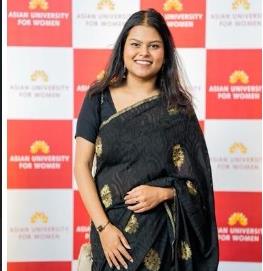
Dr. Zuhairia Ibnat, Asian University for Women
Zuhairia Ibnat is a Graduate Teaching Fellow at the Department of Education in Asian University for Women. She holds a Master of Science degree in Quantitative and Computational Biology from University of Trento. Her research interests include studying learning and cognition patterns from a neuroscience perspective. She is also the Project Lead of the Upper Primary Teacher Training Program in the Rohingya Refugee Camps in collaboration with UNICEF.
The Asian University for Women (AUW) is located in Chittagong, Bangladesh.
Founded in 2008, AUW is an independent, regional institution dedicated to educating women from across Asia and the Middle East, with a focus on empowering women leaders through a liberal arts and sciences education. The university offers full scholarships to most of its students and has an international faculty, aiming to foster a diverse, inclusive learning environment.

Dr. Katie Mathew, Johns Hopkins University
Katie Mathew holds a doctorate in Educational Leadership and Policy from Drexel University’s School of Education. Katie’s dissertation research focused on families’ beliefs about early childhood education for which she received AERA’s Early Education and Child Development Outstanding Dissertation Award in 2024. She is currently an adjunct faculty member with Johns Hopkins University, teaching within their partnership with Asian University for Women. She is also a teacher educator at the University of Washington in the Elementary Teacher Education and Multilingual Learner Endorsement Programs. She currently lives in Seattle, WA.
Abstract: Managing the Globalized Classroom: A Case Study on Preparing Teachers in Bangladesh to Embrace the Diversity of their Future Students
Acquiring global competencies has become imperative to thrive in our highly globalized world. With the increasing interconnectedness of communities, our classrooms have become more diverse in terms of culture, religion, nationality, race/ ethnicity, language, etc. Teachers must not only focus on imparting subject knowledge, but also invest in creating harmony in the classroom by teaching their students about empathy, tolerance, and inclusivity. Though a diverse classroom gives teachers the opportunity to practice these traits, it also gives rise to opportunities for more conflicts within the classroom. The ability to understand and teach for global competencies, particularly in terms of respecting diversity, can be an important tool in addressing classroom conflicts.
Conflict management and respecting diversity go hand in hand as one can be a solution to the other. It is crucial that future teachers are introduced to such global competencies and equipped with the strategies to navigate a diverse classroom while teaching effective communication and fostering positive relationships. In this presentation we will present the results of a case study which explored whether there was a transfer of understanding between global competencies and equipping educators with the practical skills necessary for conflict management in the classroom. Participants in this study were students from a Master of Arts in Education program in a university located in Bangladesh. Students in this program were preparing to become teachers, educational administrators, school counselors, and advocates, and represented a variety of national and ethnic backgrounds (N = 24). Using survey methods we explored participants’ understanding of global competencies in relation to their developing classroom conflict management skills. Our presentation will focus on how teacher education curricula which center global competencies can prepare educators for the conflicts that arise in diverse classrooms and empower them with strategies that they can implement to mitigate conflicts.
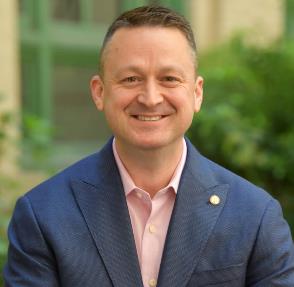
Christian Talbot, President & CEO, Middle States Association
Christian is the President & CEO of the Middle States Association, one of the world’s original school accreditors. He is past President of Regis High School (NY) and Head of School at Malvern Prep (PA). He incubated Malvern’s Center for Social Impact and founded Expeditionaries, a social entrepreneurship bootcamp that leverages genAI. He teaches in the Nonprofit Leadership Program at the University of Pennsylvania and has served on several boards.
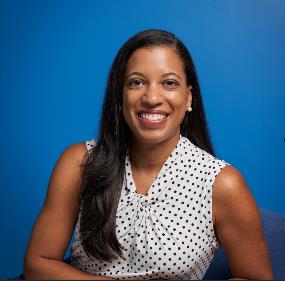
Amber Berry, Associate Vice President of AI & Strategy, Middle States Association
Amber Berry is the Associate Vice President of AI and Strategy for Middle States Association. With 15 years in education, she is a former middle school division head at St. Luke's School (CT). Amber holds degrees from Princeton, Middlebury, and Columbia. She is passionate about school change, teacher development, and responsible AI in education, continuously advancing her skills in leadership and innovation through ongoing education.
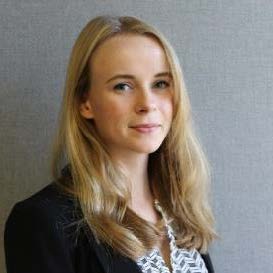
Morgan Mifflin, AI Project Manager, Middle States Association
Morgan, a Philadelphia native, earned her MA in International Security, specializing in AI ethics, cybersecurity, and integration. She also holds a BA in Political Science and Criminal Justice. Now, as AI Project Manager at MSA, she supports the Responsible AI in Learning (RAIL) program, driving ethical AI use in education. Passionate about AI’s role in transforming learning, Morgan brings a global perspective to the MSA team studying and living abroad.
Abstract: Mastering the Future: Responsible AI in Learning
In this era of rapid technological innovation, we are called to reimagine what powerful learning truly means. Middle States Association is at the forefront of guiding schools on transformative change journeys with its groundbreaking Responsible AI in Learning (RAIL) endorsements. The first, focused on AI Literacy, Safety, and Ethics, and the second, centered on the Essential Learning Experience, offer schools an opportunity to lead in shaping the future. As the world’s second-oldest accreditor, we have shifted the paradigm of accreditation to empower schools to thrive in a future defined by rapid advancements in AI—where the pace accelerates, and complexity deepens. Learn how 50 schools around the globe are harnessing AI to shape their preferred futures and navigate these unprecedented times.
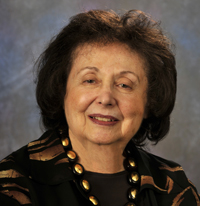
Dr. Freddie Reisman, Drexel University
Fredricka Reisman, PhD in Mathematics Education, is the founder of the Drexel University School of Education, the creator and former Director of the Drexel Creativity & Innovation Program, and the Director of the Freddie Reisman Center for Translational Research in Creativity and Motivation (FRC). She also serves as Co-Director of the Drexel/Torrance Center for Creativity and Innovation, is a member of the Global Creativity Initiative Executive Board, on the Advisory Board of the Innovation Collaborative and is President Emerita of the American Creativity Association. Dr. Reisman is the author of numerous publications on creativity, teacher education and mathematics education, and has received over 13 million dollars in grants to support her research. She formerly held the role of Drexel’s Assistant Provost for Assessment and Evaluation and also co-founded the Education, Learning, and Brain Sciences (E-LaBS) Research Collaborative. Drexel University has honored her with the Freddie Reisman Faculty Scholarly and Creative Activity Awards, a Named Award in recognition of her contributions.

Dr. Larry Keiser, Drexel University
Larry Keiser, PhD in Educational Leadership Development & Learning Technologies, is Program Director for Drexel’s Creativity & Innovation Programs, including the MS degrees in Creativity & Innovation and in Creative Education & Entrepreneurship. He also directs the Creativity & Innovation and Mind, Brain, Learning, and Innovation concentrations in Drexel’s EdD in Educational Leadership & Management program. Dr. Keiser serves as the Associate Director of the FRC, Co-Director of the Drexel/Torrance Center, and a Co-Founder of E-LaBS. He has collaborated with Drexel faculty to secure over $21M in external funding for research and program development from federal and state agencies such as the U.S. Department of Education, the NSF, the PA Department of Education, and various school districts and private foundations. These collaborations have led to innovative initiatives, including alternative teacher certification pathways, STEM teacher professional development, and workforce development programs aimed at fostering creativity and innovation in the workplace.
Abstract: Drexel University Center for Teaching and Innovation: Crisis in Teacher Preparation
A critical lack of awareness and understanding of creativity within the current teaching workforce and teacher education programs has contributed to a crisis in teacher preparation. This presentation highlights the urgent need to equip both pre-service and in-service teachers, as well as those responsible for teacher education, with a theoretical foundation and practical tools to effectively teach and foster creativity in the classroom. Preliminary findings from ongoing surveys conducted by the Freddie Reisman Center for Translational Research in Creativity and Motivation (FRC) reveal that most top teacher education programs in the US, UK, and Europe lack formal studies on creativity, despite its recognition as a vital competency for future careers. This omission hampers teachers' ability to support and develop their students' creative potential, ultimately failing to prepare future leaders for an increasingly complex society. Addressing this gap is essential for shaping a workforce capable of innovation and adaptability.
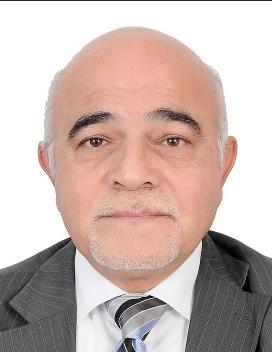
Dr. Ghanem Al Bustami, Abu Dhabi University
Prof. Ghanem Al Bustami holds a Ph.D. in Educational Psychology and Development, an M.A. in Educational and Psychological Measurement, a Postgraduate Diploma in Special Education and Rehabilitation, and a B.A. in Psychology. He is a professor of Psychology, Leadership, and Special Education at several universities, having joined Abu Dhabi University in 2005.
Prof. Ghanem has published more than 50 scientific papers and research studies, authored five books and chapters, and presented over 100 papers at national and international conferences. He has led numerous projects and developed manuals in fields such as Psychology, Education, Capacity Building, Teacher Preparation, Special Education, Social Development, Early Childhood Education, Curriculum Development, Professional Development, and Institutional Enhancement.
Additionally, he has served as a program director and consultant for various international organizations, including the World Bank, UNESCO, and regional governments.
Abstract: Examining Professional Development for Global Leadership Competence in Education
As global interconnectedness grows, educational leaders must develop global leadership competence to guide their schools effectively. This paper examines the qualifications, skills, and professional development strategies essential for preparing leaders in a globalized educational environment. The session begins by emphasizing the importance of global leadership in education. Educational leaders play a crucial role in fostering global competencies in teachers and students, creating culturally responsive and inclusive schools (Huber & Hulpia, 2019). The qualifications necessary for global leadership include cultural intelligence, adaptability, and cross-cultural communication skills, which go beyond traditional leadership abilities (Mansilla & Jackson, 2011). Formal education and diverse experiences, such as travel and intercultural exposure, are key in developing these competencies (Reimers, 2020). Professional development is critical for enhancing global leadership skills. Opportunities like workshops, conferences, and mentorships equip leaders to support teachers and maintain a global learning environment (Hargreaves & Fullan, 2012). Self-reflection and continuous improvement are also essential in fostering leadership growth (Donaldson, 2008). Core global leadership skills include cultural awareness, adaptability, global-mindedness, and the ability to lead change and innovation (Walker & Dimmock, 2000). A deep understanding of global issues and cultural dynamics helps leaders integrate global perspectives into school policies (Banks, 2008). Challenges in developing global leadership competence, such as limited resources and resistance to change, are common. Strategies like forming international partnerships and leveraging online development opportunities can help overcome these barriers (Scott, 2015; Marginson, 2011). In conclusion, this paper calls for investing in professional development for global leadership to ensure that schools are prepared for the demands of a globalized future (Leithwood et al., 2008).
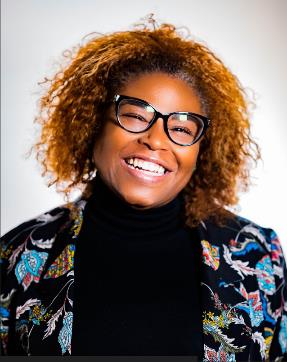
Dr. Valerie Clark-Davis, Drexel University
Dr. Valerie Clark-Davis earned her doctorate from Drexel University. She earned her bachelor’s and master’s degrees from the University of the District of Columbia. She has been an educator for over 30 years and has taught children from infancy to middle school age. She loves to read and listen to music. Dr. Clark-Davis has been married for over 38 years and is the mother of seven children.
Abstract: Strengthening the Bridge for Teachers from Teacher Preparation Programs to Early Childhood Classrooms: A Look at Preparation
Teaching is a remarkable profession that has the unique global distinction of being one of a few professions where almost everyone in the world has to encounter through a formal public or private education. From astronauts to zoologists, they have received a K-12 education. Each year the global expectation of teachers by many politicians, educational administrators, and the media is to raise the academic performance of students. For some, this is a reasonable expectation since teachers have the most consistent contact and control over children’s learning environment and its components. Globally, educational ranking of student achievement is measured by similar standardized test results. These standardized tests (ST), which has served as the teacher’s report card, show that many early childhood students are not testing on grade level and in multiple incidents teachers are being named as the problem, and both novice and veteran teachers are viewed with the same lens. This is not a fair view because novice teachers enter the classroom with minimal experience. Moreover, some might conclude that children who are not performing well on ST are struggling to learn but perhaps it is the teachers themselves who struggle at teaching them. Student teachers who have more opportunities to gain classroom experience could produce better prepared in-service teachers for the classroom. To build a stronger bridge from a teacher preparation program (TPP) to the classroom is possible. This presentation will present the dissertation titled, Exploring the Lived Experiences of Novice K-3 Teachers to Understand the Perceived Effectiveness of Traditional Four-Year Teacher Preparation Programs. This study will be presented through the lens of the sub-theme, Perception and Practice: Navigating Global Competencies in Teacher Education to understand novice teachers’ perceptions of their training on their practice in the classroom. Preparedness is a key finding in this study. It is linked with a teacher’s efficacy and competency which directly impacts student learning.
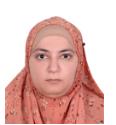
Sumbul Khan
Sumbul Khan is an educational researcher passionate about instilling high standards of discipline, knowledge, and critical thinking. Enthusiastic, pleasant, and dedicated to fostering both social and personal development, Sumbul takes a dynamic approach to researching new perspectives on diverse topics, always aiming to inspire. They hold a master’s degree in Chemistry from Aligarh Muslim University, India, and is currently pursuing a Master’s in Educational Leadership at Abu Dhabi University, UAE. Drawing on a rich educational background and experience at Aligarh Muslim University, where they held leadership roles and achieved excellence in extracurricular pursuits, Sumbul has developed strong skills in idea formulation, methodical presentation, and successful program development for community advancement. Sumbul’s commitment to educational leadership is complemented by expertise in differentiated and academic writing, public speaking, and cross-cultural communication. They
are especially adept at writing on subjects spanning education, science, global issues, and social values.
Fluent in English and Hindi, with beginner proficiency in Arabic, Sumbul is keen to explore new horizons in research that align with a passion for moral values and cultural understanding. Outside her professional life, Sumbul enjoys reading, writing, and cooking, always striving to
learn and grow.
Sumbul is now seeking an opportunity as a researcher to leverage academic skills, leadership experience, and dedication to educational excellence in a role that supports impactful, community-centered initiatives.
Abstract: Cultivating a Global Workforce for Sustainable Leadership: Addressing Climate, Conflict, and Inclusivity Challenges
This theme examines the perceived association between global competencies and the workforce of the future. It invites discussions on the skills, knowledge, and dispositions needed to thrive in a globalized world and explores how education can prepare students for success in diverse workplaces, industries, and global contexts.
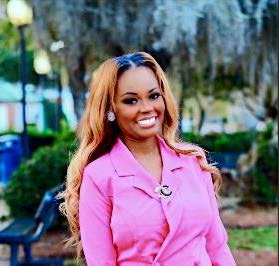
Shirley Posey Jackson
Shirley Posey, NC100BW Madam CJ Walker Educator of the Year (2024), Philadelphia Eagles Educator of the Year (2020), and recognized by Nouryon for her contributions to STEM, is a visionary in education. As Director of STEM at Imhotep Institute Charter High School, she is the visionary for the transformative STEM Ambassador Program. Her STEM Experiential Model, a culturally relevant framework, has shown measurable success in fostering critical thinking and advocacy among underserved youth. Her work, spanning Philadelphia, PA, Jackson, MS, Sapelo Island, Kenya, Ghana, and Liberia, allows high school students to be impactful global leaders and innovators. Shirley also serves as a Board Member for the Global Water Alliance.
Abstract: Cultivating Global Leaders in STEM: Harnessing Culture to Drive Sustainability
In an increasingly interconnected world, the future of education lies in developing students who possess global competencies in STEM (Science, Technology, Engineering, and Mathematics) and the cultural awareness necessary to address pressing challenges. This session, "Cultivating Global Leaders in STEM", explores a unique model in which students teach students, blending cultural heritage with STEM education to create sustainable solutions for global issues. This model has been successfully implemented in three distinct research sites: Kenya, Ghana, and "Sapelo Island, Georgia", each with its own environmental and cultural context, yet unified by a commitment to sustainable development.
My approach utilizes the power of "peer-led instruction", where students from diverse backgrounds share their knowledge of STEM to solve real-world problems within their communities. This model encourages collaboration, critical thinking, and cultural inclusivity. By integrating traditional ecological knowledge with cutting-edge STEM practices, students are empowered to address issues like water filtration, food security, and environmental sustainability.
At my research site in "Kenya", students are developing water filtration systems to address water scarcity and contamination, providing clean water access to underserved communities. In "Ghana", students are working alongside local farmers to develop hydrotech farming techniques that increase agricultural yield without relying on harmful pesticides. On "Sapelo Island", students are combining their knowledge of local ecology with advanced robotics to protect the island’s delicate ecosystem while ensuring sustainable food production.